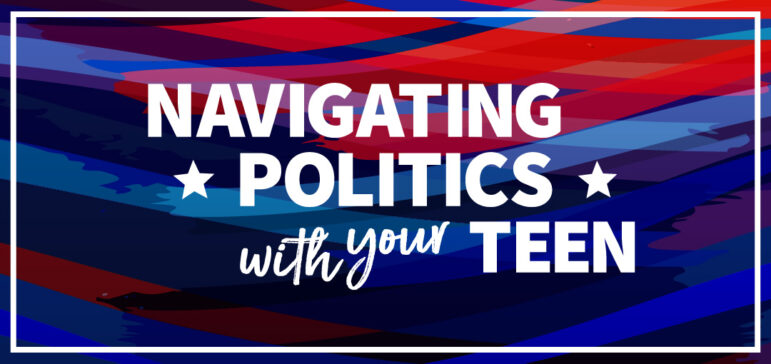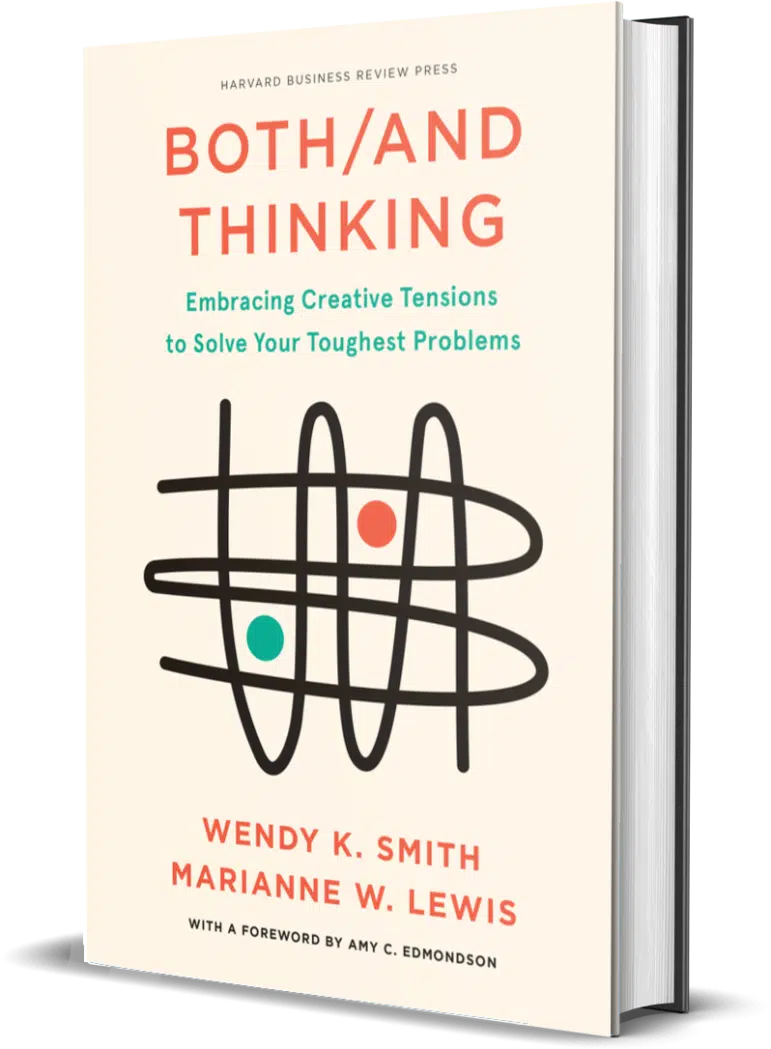
On September 24, Moving Traditions hosted Navigating Politics with Your Teen, a nonpartisan webinar for parents and educators of Jewish youth.
Thank you to the featured speakers of this intergenerational dialogue:
- Wendy Smith, author of Both/And Thinking
- Jonah Smith-Posner, a high school senior and former Shevet participant
- Yael Smith-Posner, a high school senior, Meyer-Gottesman Kol Koleinu Teen Feminist Fellow, and former Rosh Hodesh participant
- Rabbi Daniel Brenner, Moving Traditions’ VP of Education
And special thanks to A More Perfect Union, a project of The Tides Center, for supporting this event.
Watch the Recording
Jewish Texts on Civic Engagement
Just like adults, teens have power in the democratic process, regardless of whether they are old enough to vote. Here are three texts on why being involved in election education is a good Jewish and feminist thing to do. We encourage you to share these with your teen in your life and discuss.
- Hillel taught “Al tifros min hatzibur, Do not separate yourself from the community” (Pirke Avot 2:5). Moreover, it is our responsibility to play an active role in our community and choosing its leaders.
- Rabbi Yitzhak taught that “A ruler is not to be appointed unless the community is first consulted” (Babylonian Talmud Berachot 55a). Rabbi Yitzhak further explained that in the Torah, Bezalel could be chosen to build the Tabernacle only with the community’s approval. This deeply embedded ethic of political participation has guided Jews to enthusiastically participate in the American electoral process.
- “One of the great insights of the women’s movement was that “the personal is political.” This means that problems that you felt were yours alone – you couldn’t advance in a career, you weren’t treated well in relationships – were actually social problems shared by other women [and non-binary people], and as such needed social solutions. To recognize these problems meant that we needed to act together to correct them.” – Heather Booth, Jewish feminist and voting rights and abortion rights organizer
Discussion Questions:
- What, in your own words, is the Jewish value being expressed in the first two quotes? How might feminism expand our understanding of community in these texts?
- What is the value being expressed in the third quote?
- Which of these values feel most important to you right now and why?
Create a Self-Care Plan
If tensions arise as the election approaches, on election night or as results are tallied, schedule time to turn off the TV or walk away periodically. Ideas include:
- Go outside if you can and look up at the sky and count the stars.
- Have a quick liberty scavenger hunt – invite everyone in your family to find one object that represents freedom or liberty to them and bring them to a central place and listen to each person’s explanation. (You can also do this with your Rosh Hodesh, Shevet or Tzelem group virtually).
- Take one or more poetry or dance breaks during the long night. Poems to share include:
- One Vote by Aimee Nezkhumatahil
- “V’ahavta” by Aurora Levins Morales
- The New Colossus by Emma Lazarus
- The Low Road by Marge Piercy
- Langston Hughes’s Let America Be America Again, or another favorite.
- Or take a few minutes to dance to our Election Night 2024 Playlist.
- Invite teens to share a song that represents for them what the election is about.
Both/And Thinking

In Both/And Thinking, Wendy Smith and Marianne Lewis help readers cope and thrive with multiple, knotted tensions at the same time. Drawing from more than twenty years of pioneering research, they provide an actionable framework for transforming these tensions into opportunities for innovation and personal growth. Filled with practical advice, groundbreaking research, and fascinating stories, Both/And Thinking will completely change the way you approach your most vexing problems.

